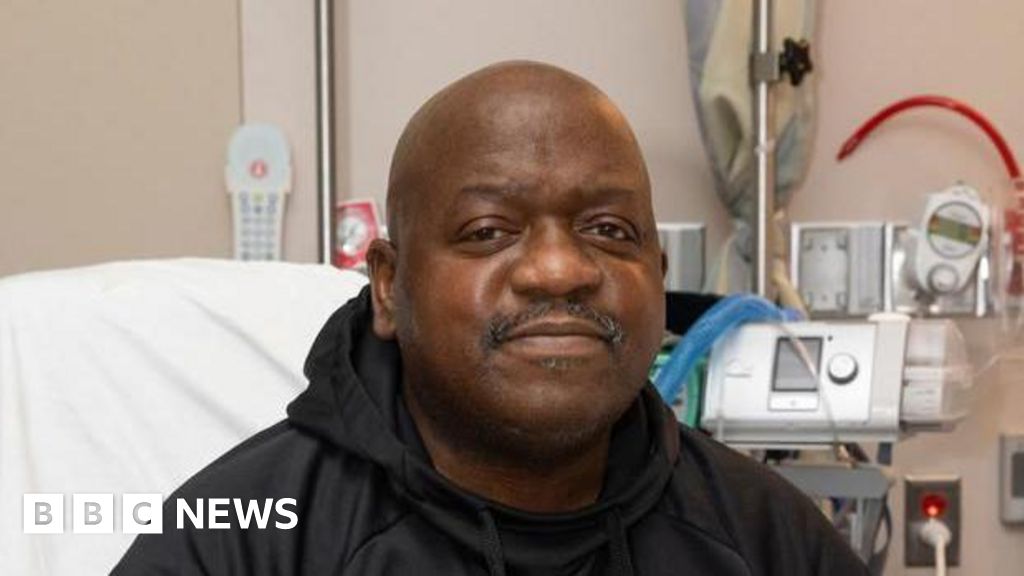Richard Slayman, a 62-year-old resident of Weymouth, Massachusetts, became the first person to receive a kidney transplant from a genetically modified pig. Unfortunately, Slayman passed away approximately two months after the surgery.

Also Read: A 30 Year Study Reveals Ultra-Processed Foods Linked to Early Death
Richard Slayman underwent the operation at Massachusetts General Hospital (MGH) in March. End-stage kidney disease had plagued him compounded by Type 2 diabetes and hypertension.
Despite a previous human kidney transplant in 2018, which sustained him for five years, his health deteriorated, necessitating this intervention.
The successful transplantation of a pig kidney into Slayman’s body is a historic milestone in xenotransplantation.
While previous attempts with pig organs had encountered setbacks, Richard Slayman’s surgery was hailed as a breakthrough.
Following the four-hour surgery, Richard Slayman showed promising signs of recovery. Discharged from the hospital in April, his doctors were cautiously optimistic about the longevity of the transplanted organ.
Although uncertainties lingered regarding animal-to-human transplants, Richard Slayman’s resilience and the medical team’s dedication fueled optimism.
While Richard Slayman’s journey captured headlines, it shows the challenges and complexities of xenotransplantation.
Despite advancements, immune rejection and long-term viability remain huge hurdles. Richard Slayman’s experience galvanized efforts to overcome these obstacles and redefine the organ transplantation.
EGenesis, the biotech company behind the genetically edited pig kidney expressed gratitude to Slayman and his family.
Their commitment to advancing xenotransplantation underlines the collective determination to address the organ shortage crisis.
Richard Slayman’s family, mourning the loss of a beloved husband, father, and friend. His care team at Massachusetts General Hospital expressed these sentiments recognizing his impact on patients, researchers, and healthcare professionals.
Richard Slayman’s journey shows the urgent need for viable solutions to the organ shortage crisis. With over 100,000 people awaiting transplants in the United States alone.
Richard Slayman’s medical was by tireless efforts of medical professionals at Massachusetts General Hospital. He had battled Type 2 diabetes and hypertension for years before receiving his first kidney transplant in December 2018.
This transplant’s efficacy waned over time leading Richard Slayman back to dialysis in May 2023. The shortage of viable organs for transplantation remains a pressing issue in healthcare systems globally.
Also Read: CKM Syndrome: 90% of US Adults at Risk of Heart Disease
In the United States alone, over 800,000 individuals struggle with end-stage kidney disease with disproportionately higher rates among Black people like Richard Slayman.
Nearly 90,000 patients languish on the national waiting list for a kidney, highlighting the urgent need for innovative interventions to bridge this gap between supply and demand.
Richard Slayman’s decision to undergo a xenotransplantation procedure offered a hope not only for himself but also for countless individuals awaiting life-saving transplants.
The surgery performed in March involved transplanting a kidney from a genetically modified pig is a milestone in the field of organ transplantation.
For decades xenotransplantation had been hampered by the human immune system’s rejection of animal tissue.
Recent advancements in genetic engineering particularly CRISPR-Cas9 technology made the way for modifying pig organs to make them more compatible with human recipients.
The kidney used in Richard Slayman’s transplant was harvested from a pig modified by eGenesis, a biotech company based in Cambridge, Massachusetts.
Through the removal of three pig genes and the incorporation of seven human genes, eGenesis aimed to enhance organ compatibility and tackle the risk of rejection.
The company deactivated retroviruses inherent in pig DNA that could pose harm to human recipients addressing long-standing safety concerns associated with xenotransplantation.
The four-hour surgery represented a culmination of years of scientific research and collaboration between medical experts and biotechnology innovators.
Richard Slayman’s successful recovery and discharge from the hospital two weeks post-surgery offered a hope to patients struggling with organ failure.
While Massachusetts General Hospital reiterated that there was no indication linking his death to the transplant, questions regarding the safety of genetically modified pig organs lingered. The hospital’s transplant team expressed sadness at Richard Slayman’s passing.
Also Read: AlphaFold 3: Drug Discovery AI Model Unveiled by Google DeepMind and Isomorphic Labs























